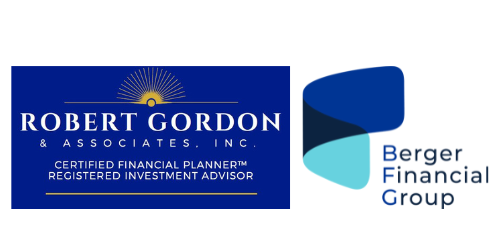When Is It Time To Hire A Financial Advisor?
Submitted by Robert Gordon & Associates, Inc on December 14th, 2017
While nearly everyone could benefit from working with a professional financial planner, the cost is often prohibitive. There comes a time, however, when paying for financial advice becomes a solid investment in your future. How do you know when it’s time to hire a financial advisor?
In a perfect world, everyone would have financial advisors with whom we could check in once a month or call before making a big purchase or investment decision.
Realistically, however, financial advisors are expensive. And that’s not necessarily because they don’t want to work with people who can’t afford them, but because advisors have to charge a certain amount to make a living doing what they do.
As a result, the decision to hire a financial advisor requires a careful cost/benefit analysis. What does it cost, and what do you expect to get in return?
So, how much do financial advisors cost?
It varies, but most fee-only financial planners will charge between $1,000 and $2,000 for a comprehensive financial plan. For ongoing advice, you could expect to pay a monthly retainer of a couple hundred dollars.
That’s for financial planners. But not all financial advisors are created equal. While those who identify as planners typically take a holistic approach to your finances—helping you with everything from debt to spending decisions to investments—many financial advisors are actually investment advisors who specialize in managing your investments for you.
Most fee-only investment advisors charge a fee equal to a percentage of your invested assets. An unofficial industry benchmark is one percent, although advisors may charge slightly more or less. So if you have $200,000 to invest, you would pay $2,000 a year. If you have $1 million, the fee would jump to $10,000 a year, although some advisors have a fee structure in which the percentage slides down as your assets grow.
Finally, some financial advisors earn their fees not from clients, but from banks and investment companies. Generally, these are the advisors you’ll find sitting at your local bank or affiliate with a large brokerage firm.
Although they offer “free” advice, which may be tempting, these advisors usually earn commissions from the investments they sell you. Over time, being in the wrong investments may actually cost you more than paying a fee-only advisor.
Whenever you meet with a financial advisor, ask questions about how he or she is compensated. We’re not saying all advisors who work on commission are going to give bad advice, but a good advisor should be transparent.
What benefits can you expect from hiring a financial advisor?
In my opinion, there are three reasons to hire a financial advisor:
- You feel “lost” in planning for your financial future and you need a roadmap.
- You just don’t want to deal. When it comes to money, you’re not the DIY type, and you just want a professional to take care of it.
- You like managing your money, but realize that your financial plan would benefit from an impartial and unemotional third-party opinion.
I think all of us will fall into one of these three categories…at least eventually. But let’s look at each situation and consider when it’s time to hire a financial advisor.
1. You need help with planning your financial future
This may be true for most of us when we’re starting out. There are so many goals competing for our limited financial resources: Paying off student loans, funding a retirement account, saving an emergency fund, buying a house, taking a vacation, getting married, having fun NOW. It’s no wonder we find money so overwhelming as 20- and 30-somethings!
If you have a comfortable emergency fund and can afford a financial advisor’s fee without going into debt, a financial planner might be a good investment. In fact, the planner’s fee may pay for itself in a few years if he or she helps you make better financial decisions in the meantime.
2. You just don’t want to deal with money
Some people hate managing their money. And that’s cool; what’s important is that you recognize it and get someone to do it for you. In this case, hiring a financial advisor is a no-brainer.
What you’ll need, however, is enough investable assets for an advisor to take you on.
When it comes to investment advisors, most can’t afford to work with you as a client until you have $100,000 or so of investments. Some drop that to $50,000 while others won’t take clients until they have $500,000 or even a $1 million to invest. So you’ll have to shop around.
3. You want an impartial third-party opinion on your money
There are a lot of do-it-yourself investors who never hire a financial advisor. Their thinking is—I like doing this myself and I’m fairly savvy, why would I pay someone one percent of my money every year and reduce my returns?
But here’s the thing: No matter how much you learn about investing, you’ll never be on an even playing field with Wall Street. And no matter how much you learn about investing, you’ll always be human and, therefore, susceptible to making irrational decisions.
If paying a financial advisor saves you from one bad decision a year—or spots an opportunity that you overlooked—he or she may very well increase your investment returns, despite the fee.
Summary
Hiring a financial advisor may be costly, but for many, it has proven to be the best investment they ever made. Whether you feel lost in your finances, you want a second opinion, or you just don’t like dealing with your money on your own, try a financial advisor.

